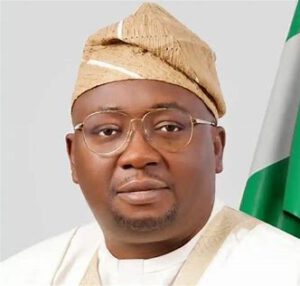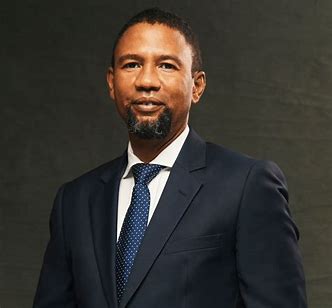
Adelabu
Adebayo Adelabu, the minister of Power, made this known when he spoke during his appearance at the 2025 Ministerial Press Briefing Series at the Radio House in Abuja, moderated by Mohammed Idris, the Minister of Information.
The minister disclosed that there is a seven million consumer meter shortfall, adding that the government is bridging with a planned programme.
According to him, no fewer than 80 million Nigerians out of an estimated 240 million population lack access to electricity.
According to him, the government has opened talks with some investors who have indicated interest in the operation of some aspects of the grid before the end of the year.
He said: “We have various offers from private investors. The national grid is owned 100 per cent by the government.
“But, I can tell you, with other ministries competing for funds, we cannot fund the national grid alone.
“It is an expanded national grid. It is too large and there are some dedicated lines in which some private investors have expressed interest.
“Let them finance construction of new lines, construction of new substations and introduction of new transformers.
“They will be able to benefit from the proceeds of the willing charges from the Distribution Companies (DisCos) and the Generation Companies (GenCos).”
Adelabu also promised that the government will settle N2 trillion out of the N4 trillion indebtedness to GenCos before the end of the year.
He said he was already discussing with the Minister of Finance and Coordinating Minister of the Economy, Mr. Wale Edun, who has pledged to settle the debt with budgetary allocation and guaranteed instruments.
According to the minister, the government subsidises 85 per cent of the N170 per kilowatt of electricity consumed by Nigerians on Band B to E, adding that half of the N4 trillion debt was inherited from the previous administration.
He also revealed that the 11 DisCos are not charging cost-reflective tariffs, resulting in limited investment in the sector.
Furthermore, Adelabu said the local meter manufacturers are only capable of assembling the parts instead of hokistic profuction.
“They assemble completely knock-down parts, CKDs, or semi-knock-down parts, SKDs. They are not full manufacturers. Local content ranges from 10 to 40 per cent. So, we rely more on importation plus local supply.
“The procurement process has started, I can assure you, and we have a plan for two million meters annually for the next five years, and the procurement process has started.
“If we add two million meters annually, it’s 10 million meters, plus 1.1 for this year, that’s 11.1 million meters.
“Before the end of this year, 1.3 million meters will come from the World Bank-funded DSTREP programme.”





